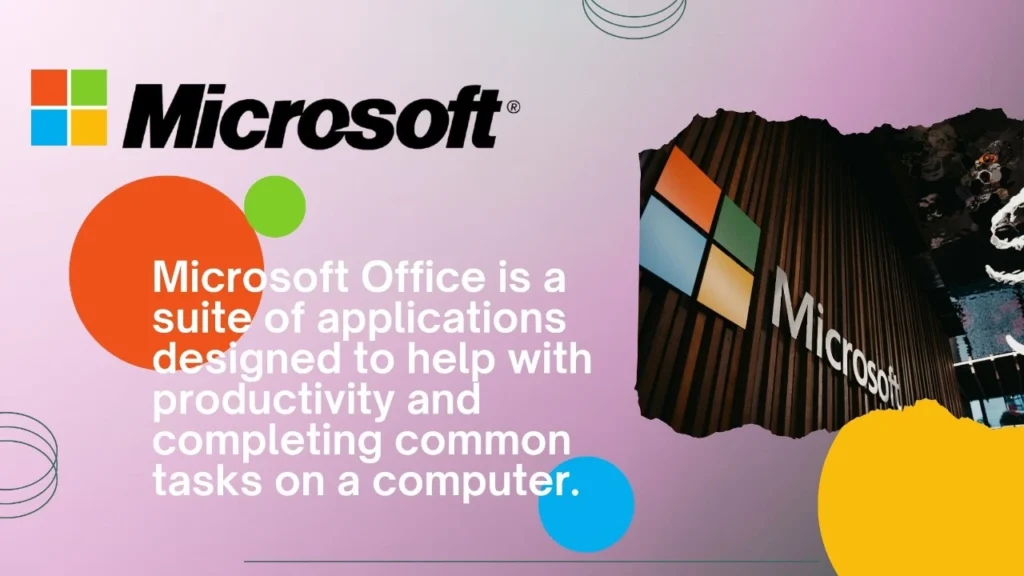Introduction to Google Cloud Computing
With the increase in the use of technology today, Google cloud computing is one of the solutions that people or business organizations have resulted to delivering their computing needs. Among the many cloud computing services available Google Cloud Computing comes out as the best due to its strong features and modernized approach. This article is dedicated to uncovering the basics of Google Cloud Computing, its various services best for business like Google Compute Engine and Google Drive for Desktop, the certification courses, the costing mechanisms and many more.
What is Google Cloud Computing?
Google Cloud Computing is the set of services offered by Google to enable companies to run applications and store data on Google’s infrastructure. By making use of this technology, people are enabled to benefit from the provision of scalable resources, teamwork, and the reduction in the use of fixed hardware. This method permits organizations to pay more attention to how they can penetrate the new markets instead of being bogged down by what should be simple IT systems that other corporations today consider essential when serving as the basis of an enterprise.
Some highlights found in Google Cloud Computing
Google Compute Engine
One among the most fundamental of all services is the Google Compute Engine (GCE) which allows the users to come up with and run for that matter virtual machines works on Google’s global network. This particular solution is distinguished by the impressive level of scalability together with a suitable architecture that makes it a second best choice for businesses.
Benefits of Using Google Compute Engine
- Scalability: most effective approach for that system is the use of GCE because the user can expand front-end resources swiftly in order to supply demand at its peak without compromising performance.
- Cost-Efficiency: In addition, there is a model of payment which is based on units of resource consumption this is called a variable pricing in which users only need to pay for the amount of resources that have been used which is helpful when resource budgets are concerned.
- High Performance: In addition to that, the system tends to keep perfect tens of uptime since it is running from the Google’s servers thus a few latencies will be experienced. Other Essential Services
It is worth noting that there are other facets of Google Cloud besides GCE:
- Google Cloud Storage is a system for dealing with vast quantities of data securely, as well as a wealth of other valuable services for archives and backups.
- Google offers a single virtual cluster that takes care of all the container deployments and introduces Google Kubernetes Engine as a separate product.
- Google BigQuery is an application developed by Google to quickly process large sets of data for analytical purposes, thus leading to answer-oriented results in the data.
Interpretation of Google Compute Engine
Google’s Compute Engine allows the end users to create their own Virtual Machines or VMs based on specific requirements, a case where the range of machine types is standard to high-memory types among others, thus allowing the users to tune the parameters according to the to be satisfied work load.
Most Important Characteristics
- Automatic Scaling: Scales up or down instances on the fly, depending on the real-time traffic, to ensure cost efficient running.
- Persistent Disk Storage: Offers sound storage which is also performant and remains available even the virtual machine is down.
- Advanced Networking: It includes configurations, such as virtual private cloud (VPC), which tends to offer more security and remote connectivity.
GCE Google Cloud Compute Engine Integration
Interactions between the main Google Cloud Ensemble service components, and Google Compute Engine, simplifies the work of administrators and developers greatly. By exploiting both tools, for example, linking BigQuery with Compute Engine it is possible to reduce complexity of processing activities and speed up key insights extraction from the data for the benefit of organization and travel.Google Drive for Desktop and Google Drive for PC
Google Drive: A Look at Cloud Storage
Businesses care a lot about how cloud services charge them. Google Cloud shows its prices helping users figure out costs based on how much they use.
Cost Management Strategies
- Budgets and Alerts: Put limits in place and get warnings to keep an eye on spending and avoid surprise bills.
- Resource Optimization: Check often how you’re using resources to make sure you’re getting the best deal.
Comparison with Other Providers
When you’re picking a cloud provider looking at prices matters. Google Cloud’s prices, along with what it offers often give better value than rivals like AWS and Azure.
Use Cases of Google Cloud Computing

Real-World Applications
Many groups in different fields use Google Cloud services to make their work better.
- Startups: Often pick Google Cloud because it’s easy to change and good value letting them grow as they need.
- Enterprises: Big companies get a lot from BigQuery’s strong analysis tools to help make choices and work smarter.
Benefits for Different Business Sizes
Google Cloud works well for both new and big companies because it can grow with them and has lots of different services for various needs and budgets.
Future of Google Cloud Computing
Trends and Innovations
Cloud technology keeps changing, and Google Cloud leads the way in new ideas. We expect to see better AI and machine learning tools more automation, and stronger security features.
Google Cloud Pricing and Cost Management
Businesses care a lot about how cloud services charge them. Google Cloud shows its prices helping users figure out costs based on how much they use.
Cost Management Strategies
- Budgets and Alerts: Put limits in place and get warnings to keep an eye on spending and avoid surprise bills.
- Resource Optimization: Check often how you’re using resources to make sure you’re getting the best deal.
Comparison with Other Providers
When you’re picking a cloud provider looking at prices matters. Google Cloud’s prices, along with what it offers often give better value than rivals like AWS and Azure.
Many groups in different fields use Google Cloud services to make their work better.
- Startups: Often pick Google Cloud because it’s easy to change and good value letting them grow as they need.
- Enterprises: Big companies get a lot from BigQuery’s strong analysis tools to help make choices and work smarter.
Benefits for Different Business Sizes
Google Cloud works well for both new and big companies because it can grow with them and has lots of different services for various needs and budgets.
Future of Google Cloud Computer Trends and Innovations
Cloud technology keeps changing, and Google Cloud leads the way in new ideas. We expect to see better AI and machine learning tools more automation, and stronger security features.
Predictions for Google Cloud Services
Google Cloud’s future looks bright. We think it will offer more services, make things easier for users, and grow more popular across different industries.
Conclusion
Google Cloud Computing gives businesses a full set of tools to meet their needs today. From the strong Google Compute Engine to the team-friendly Google Drive, this platform helps companies do well in the digital world. As cloud tech keeps changing, using these tools will help businesses work better and come up with new ideas.
Frequently Asked Questions:
Google Cloud computing is the set of computing services that includes software, hosting and infrastructure to support corporate growth and development of applications. This involves infrastructure V IaaS; platform V PaaS; software V SaaS. Main areas of application are in database storage, artificial intelligence, data processing, software creation, as well as websites. Organization of any size, from a start-up to an enormous company can use the solution since it is flexible and can easily be scaled.
The usage of Google cloud is completely free for many of its products with limitation of the service offering they can access. This entails a measure of storage, computing, and opened Application Program Interfaces. But after a point, the more basic user will have to upgrade and pay more for the extras. It’s a great way developers and small businesses to start to figure out what cloud is about without making large investments.
Nevertheless, it is essential to distinguish between the two giants of the cloud service market – GCP and AWS. AWS which was earlier in the market also provide more comprehensible services and have larger market base. Google Cloud is more oriented on data analysis, artificial intelligence, as well as on open sources, and it is suitable for developers and companies who are searching for unique solutions. All the platforms are good in their own nature that is why they serve their purpose in different ways.
Some of the Google Cloud services in the free tier offer the benefit of a fixed amount of storage. For instance, users are allowed to have up to 30 GB of standard storage on Google Cloud Storage with 1 GB outbound each month. Moreover, Google also gives users $300 in credits for 90 days for exploring services beyond free tier limits in many services.
To use Google Cloud, follow these steps:
Create a Google Cloud Account: The Google Cloud website and its tools have to be registered and created an account on.
Choose a Service: Choose from several services offered by Google including Compute Engine, Google Kubernetes Engine or BigQuery.
Set Up a Project: Develop a new project for resourcing and billing in order to improve the process.
Configure Resources: You can use the Cloud Console or tools for command-line interfaces for creating virtual machines and databases and other services.
Deploy Applications: Use Google’s services to develop your applications or upload your applications so that they are hosted and run as solutions.
What does GCP mean? GCP means Google Cloud Platform. It internally consists of a rather broad group of services provided by Google cloud computing, allowing users to develop, run, and host applications and services on Google.
Google Cloud is useful for several reasons:
Scalability: You can very quickly and easily add to or subtract from services depending on demand.
Innovation: Opportunities to use high technologies such as machine learning, big data analysis.
Cost-Effectiveness: With Pay-as-you-go pricing, the expenses of the business are put under control.
Global Reach: Many data centers provide a high availability and low latency even if most of the data processed is located far away from the actual storage location.
Integration: Compatibility with other Google products and other apps.
Absolutely, and Google Cloud has security of the platform as one of its key considerations. It implies data protection at the rest and while transferring, user identity, and access control, and it follows GDPR and HIPAA guidelines. Google also uses higher level of security features such as machine learning system to detect threats likely to occur to users data.
Google Cloud Platform GCP professionals can be paid differently depending on the type of role, experience or working location. For instance, in the United States, the cloud engineers and architects can earn up to $90,000 $150,000 on average in any given year. The positions of respective higher hierarchy, and the functional niche positions including the cloud safety specialists could be paid even higher amount of salaries.
It is essential to turn to the consideration of the general tendencies and requirements together with the peculiarities of a definite field of business to define which of the platforms is the best for problem-solving. Google Cloud: This service provider is most preferred for data analytic and machine learning services AWS: this is the most extensive service provider in the market. Microsoft Azure is another serious contender, again, for businesses incorporating Microsoft services. Tally up your needs, the amount of money you have to spend and the proficiency level of the team members to decide on which platform is best suited for your organization





